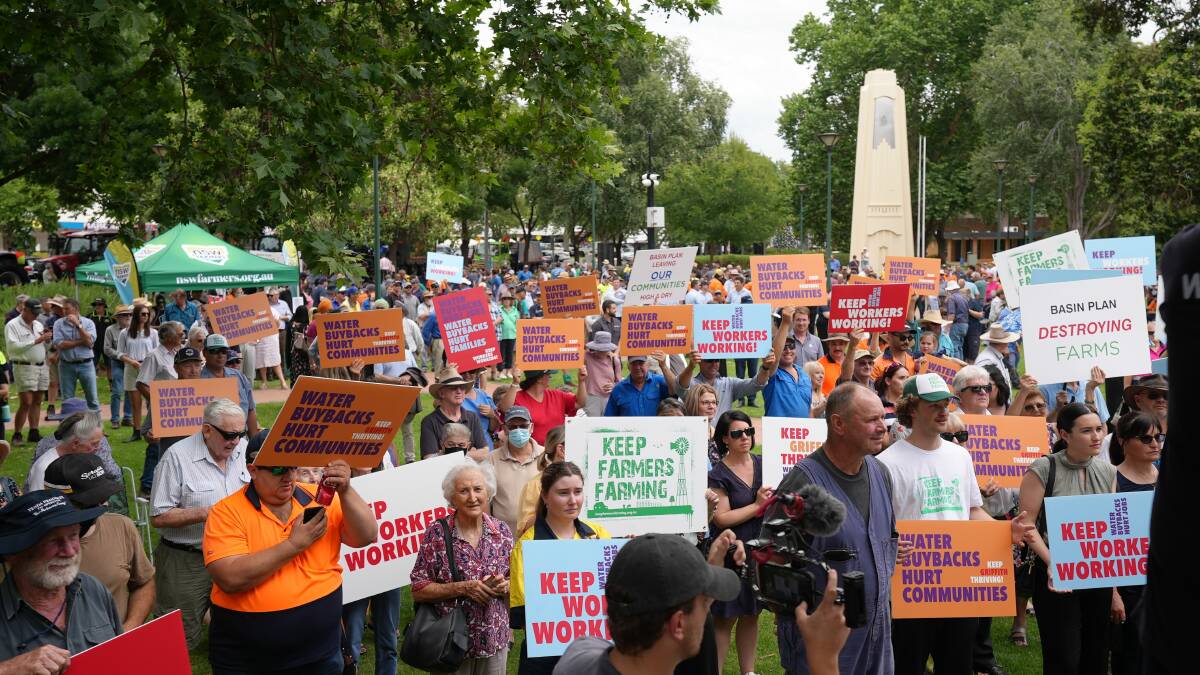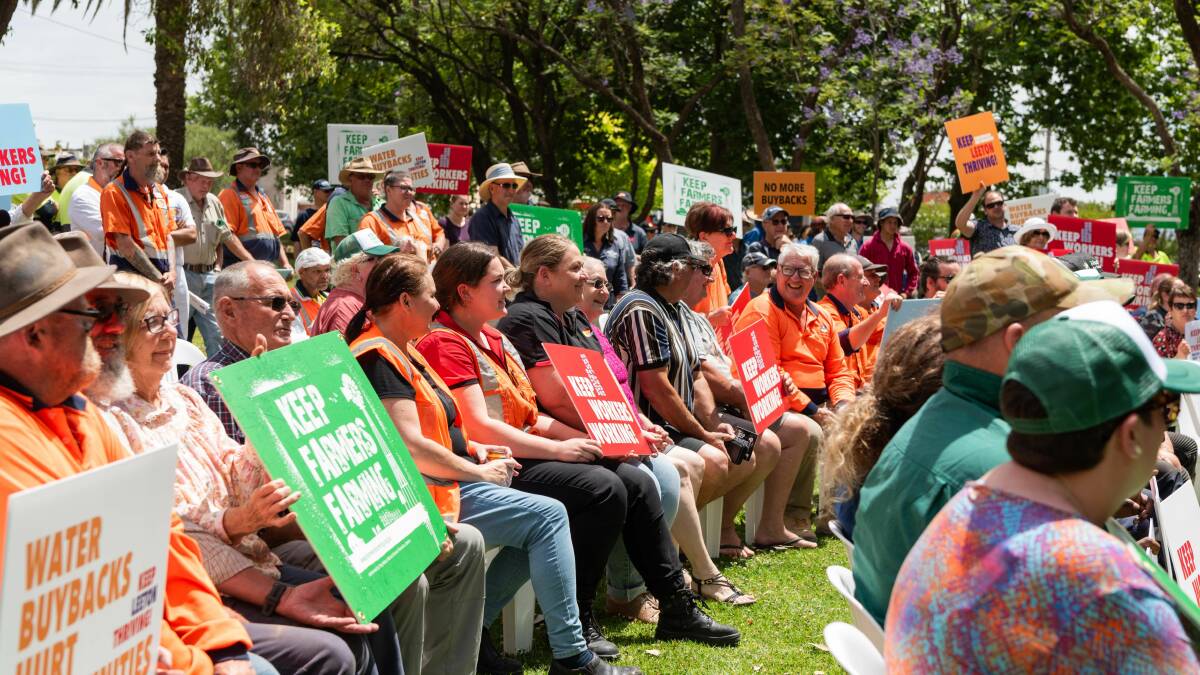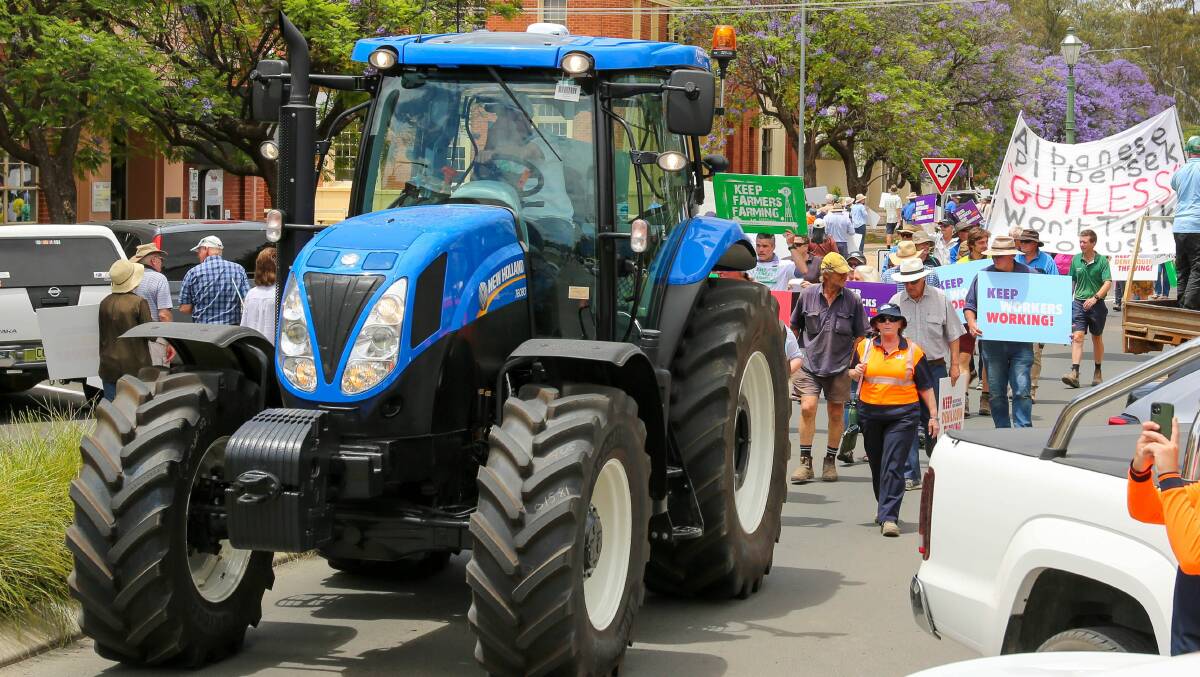
Communities across the Riverina have presented a unified front against proposed changes to the Murray Darling Basin Plan (MDBP).
Subscribe now for unlimited access.
or signup to continue reading
Rallies against a proposed tightening of the plan were coordinated in Griffith, Deniliquin and Leeton by community and local government leaders.
Sunrice worker Adam Roden joined the protest because he is concerned about the future of rice farming in Leeton and the Murrumbidgee Irrigation Area (MIA).
"Less water is less rice, in simple terms. Then the water that's left in the system, the price is going to shoot up and it's going to be unsustainable for farmers," he said.
"The MIA is built on water. At the end of the day without water there's not much of anything left.
"It's literally in the name - 'Irrigation Area'. You build a whole area up for this purpose over years, and then just want to take it away ... it's like opening the Harbour Bridge and just letting people walk all over it."
IN OTHER NEWS:
In August, an agreement was made between the federal, NSW, South Australia, Queensland and ACT governments to deliver the Murray-Darling Basin Plan in full.
Inquiries by the Senate, and Productivity Commission into the MDBP found it was significantly off track, and unlikely to achieve its goals without significant changes.
The total shortfall is predicted to be around 750GL at the end of 2024 - nearly a third of the total that was to be recovered before that time.
The Water Amendment (Restoring Our Rivers) Bill is an attempt to extend the deadline, and get this process back on track.
It seeks to recover 450GL of additional environmental water by December 2027 by removing limits on the government purchasing water for the environment in a process known as "buybacks", and creating additional water efficiency within the river system.
Executive director of Southern Cotton Kate O'Callaghan said the government's planned buybacks would be "catastrophic" for MIA.
"The problem with water buybacks is they're going to put us into drought every year," she said.
"We've supported the MDBP from the get go. We've built efficiencies into our system, we've returned water to the environment ... the farmers are working hard for the same purpose."
One of the more controversial parts of the water amendment would remove requirements water buybacks have a net positive or neutral socio-economic impact on communities.
This means the net impact on local economies will no longer be taken into account when deciding whether a buyback is appropriate.

Water and Environment Minister Tanya Plibersek say while buybacks were on the table, she viewed them as a last resort for water recovery.
"I don't want to see all this water bought - that's why I am extending timeframes to give Basin governments more time to finish their water saving projects. It's also why I am open to other non-purchase options," she said.
"I'll be looking at a range of options to deliver the 450GL. On-farm and off-farm efficiency projects, voluntary water purchase and other options are all part of the mix.
"Where voluntary water purchase does have a socioeconomic impact, transitional assistance funding can be provided."
But many in the area don't believe the environment minister intends to use buybacks as a last resort.
Ms O'Callaghan said they were an easier option for governments than deep community consultation, and finding water savings through other projects.
"Taking water out of production at this stage is a lazy option," she said.
"They really have to have a good understanding of the impact on the community of those buybacks. They need to do that work before buybacks are on the table, and it hasn't been done yet."

Leeton mayor Tony Reneker said buybacks would hurt his community - unless water was on-sold to other irrigators.
He said farmers were as concerned about the health of the river as any environmentalists, but didn't want to see his community threatened.
"I know heaps of farmers, and they want the river to be healthy. It's their livelihood - if you've got an unhealthy river with no water, they lose out again.
"The elephant in the room is there are individual farmers that want to sell water for a variety of reasons.
"I'm happy for people to sell it, but I think it should remain in the basin, not for the environment."
Our journalists work hard to provide local, up-to-date news to the community. This is how you can continue to access our trusted content:
- Download our app from the Apple Store or Google Play
- Bookmark dailyadvertiser.com.au
- Follow us on Twitter
- Follow us on Instagram
- Follow us on Google News
- Make sure you are signed up for our breaking and regular headlines newsletters















